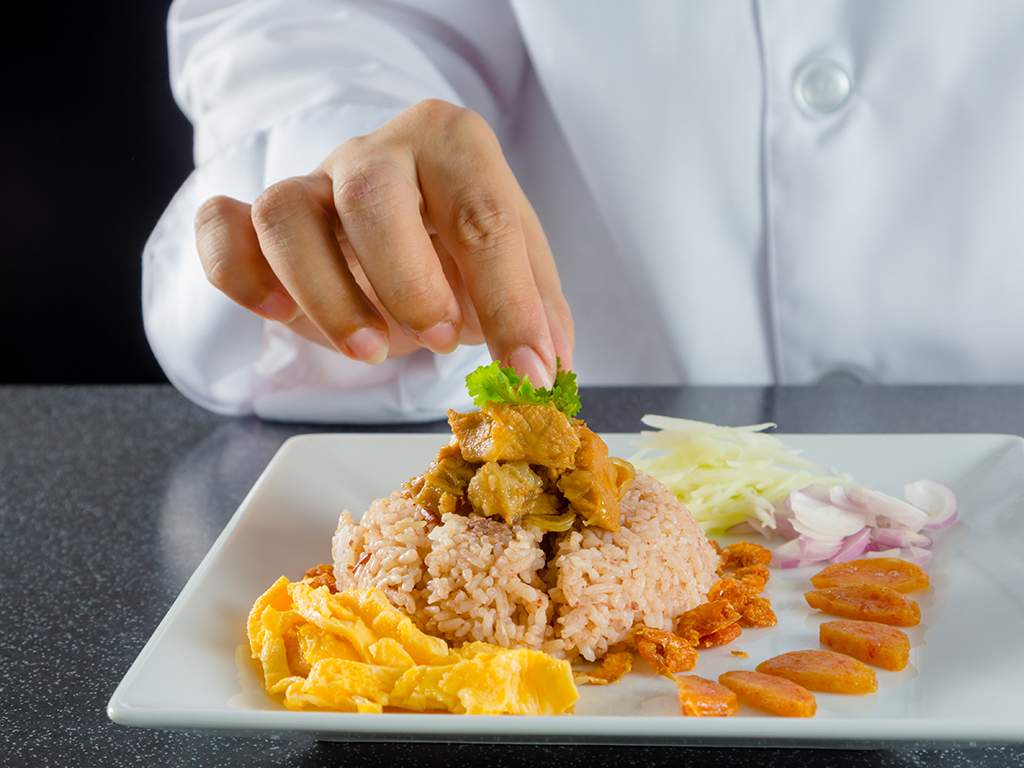Restaurants with zero waste - From Berlin to Helsinki
 Sunday, 07.04.2024.
Sunday, 07.04.2024.
 14:05
14:05

We present three such restaurants located in Finland, Germany and Spain.
Nolla, Helsinki
The restaurant, whose name itself means zero in Finnish, was opened in 2019 with the desire to offer guests great dishes, but without compromising sustainability. Although most "zero waste" restaurants opt for vegan and vegetarian cuisine, meat specialties can be found here. The menu changes seasonally, and the April menu includes roasted goose in pumpkin and beetroot sauce, venison tartare with goat cheese, steak with fried beets in red wine sauce.
The ingredients are sourced from local farms, there is no single-use plastic, the uniforms are made from recycled materials, even the gift cards are made from biodegradable paper with poppy seeds for visitors to plant in their homes.
Anything that cannot be used, such as eggshells, vegetable peels and even small bones, is composted and turned into fertilizer. But first, everything that is meant to be thrown away is carefully measured and then analyzed using software to determine what was thrown away and why, to ensure that waste is reduced in the future.
The owners reveal that this way of running a restaurant also has economic benefits, the costs are reduced because almost everything is used, but they add that the process itself can be demanding, and it is neither easy nor cheap to find suppliers who do not use packaging and adhere to a zero-waste philosophy.
Frea, Berlin
Full taste, zero waste - this is the motto of the Frea restaurant in Berlin, which has been serving vegan cuisine since 2019.
Beetroot with grapefruit, lemon and seaweed, potato salad with parsley root, mustard, caper and bergamot, are some of the dishes they are proud of, the secret of which is regional, seasonal ingredients from organic farms.
Their goal is to have no waste at all, and if at the end of the day, a dish is not on the menu, they don`t see it as tragic, because there are enough other delicacies that the guests can choose from. As for the leftovers from the customer`s plate or those that arise during the preparation process, such as vegetable peels, they have a composting machine that turns the food waste into a soil substitute within 24 hours, which then goes back to the farms.
The founders say that they want the guests to enjoy delicious food, but also to question the established patterns. That`s why they also think about packaging, so they get vegetables from suppliers without packaging, while flour and other products arrive in paper bags that are 100% recyclable.
They do not hide that, nevertheless, the industry is not yet ready for this way of thinking, although they claim that with the "zero waste" philosophy, the restaurant saves money, but with more work and careful preparation.
Azurmendi, Larabec
On a hill above the highway, practically in the middle of nowhere, in the Basque town of Larabec, near Bilbao, is the Azurmendi restaurant. The location is not an obstacle, because you come here with the intention of enjoying specialties with three Michelin stars, but also a special ambience.
The facility, opened in 2005, is often on lists of the world`s best restaurants, as well as the most sustainable. Built in 2012, the bioclimatic building blends perfectly into the landscape, taking advantage of the environment and climate to minimize energy use and enhance the guest experience. Natural elements, such as a garden, aromatic plants and green areas on the roof, complete the experience. The restaurant collects rain water and uses it for toilets and gardens, has solar systems, uses geothermal energy, recycles waste.
Some of the vegetables and spices are produced in the restaurant`s garden, and the used fat is used to make soaps that guests receive as gifts.
On the menu, which costs EUR 315, there are delicious bites, among them asparagus, baked lobster, omelette with mushrooms, cauliflower with caviar, chocolate and peanut cake. Guests can also choose just one dish from the menu, at a price of 49.50 EUR.
As the owner, the famous chef Eneko Atxa, said, in the world of hospitality, everything revolves around the perfect ingredients for a meal. A change is needed, he says, so that his colleagues understand that nature, as their greatest source of inspiration, is under threat.
Sustainability here is also reflected in the attitude towards the workers, so the restaurant is open only for lunch on Tuesdays, Wednesdays and Thursdays, and is closed on Sundays and Mondays.


 Izdanje Srbija
Izdanje Srbija Serbische Ausgabe
Serbische Ausgabe Izdanje BiH
Izdanje BiH Izdanje Crna Gora
Izdanje Crna Gora


 News
News






